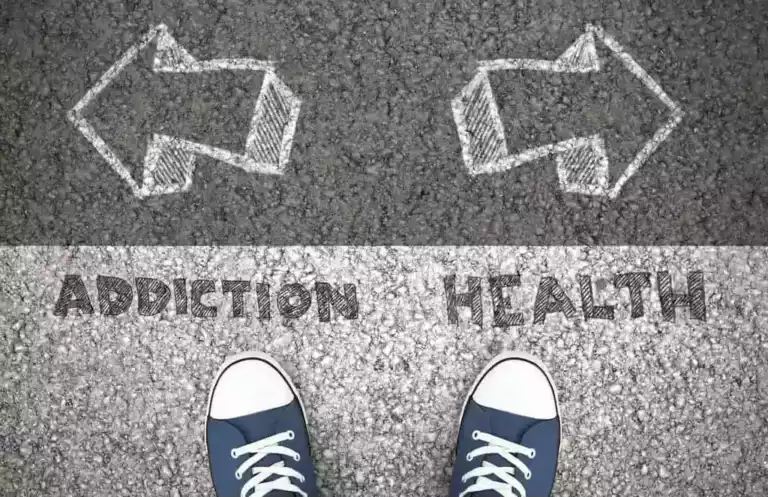
By 5 years, all other cognitive functions have returned to anormal level state. Unfortunately, as an exception to the brain’s generalrestorative abilities, people who develop wet brain don’t recover in thisway. If you drink, make sure you get adequate thiamine to prevent this irreversibledisease. Paul is passionate about high-quality addiction treatment and truly believes that, with the right treatment, anyone can recover. After completing detox, individuals can benefit greatly from aftercare programs designed to provide ongoing support during the transition to sobriety. These programs often include regular check-ins, counseling sessions, and educational workshops on relapse prevention strategies.

More in Healthy Living
This in-depth guide explores compulsive personality disorder tests, helping you understand the disorder, recognize potential symptoms, and find appropriate resources for professional diagnosis. Learn about the different types of tests available, their limitations, and the steps to take after self-assessment. Dr. Anand stresses the importance of drinking in moderation, if at all. If you drink for long periods of time, it can cause depression, and when you abruptly stop drinking, it can cause anxiety,” says Dr. Anand.
Recognize your addiction patterns
Cognitive exercises, like puzzles and memory games, can help sharpen your mind. Even simple things like reading or learning a new skill can be beneficial for your brain. Since alcohol can become addictive when someone drinks in excess for a long amount of time, it’s also important to remember that there are resources available that can help with recovery.
Liver damage
Accordingly, neuroimaging tools are required to observe the pathological changes and disease progression to figure out alcohol brain fog an applicable treatment agreement for AUD. The duration of brain fog after drinking can vary depending on several factors. If you’re experiencing brain fog as a result of a hangover, it typically lasts between 8 to 24 hours.
Combating Brain Fog During and After Alcohol Detox
These chronic health conditions are progressive, cause a heavy economic burden alcoholism symptoms to society, and decrease the quality of life for both patients and caregivers 4. Recovering from alcohol-induced brain fog requires time, patience, and support. It is crucial to seek professional help and engage in activities that promote brain health and overall well-being. Implementing a combination of healthy lifestyle choices, cognitive exercises, and comprehensive treatment can help alleviate brain fog and restore cognitive function.
- I know some of the tips we provide seem very basic, but sometimes, the foundational basics are essential when it comes to alcohol recovery.
- Once the fog clears, you should see your situation in a new light, and this is the moment when you will discover just how good it feels to be sober.
- But if you have a regular coffee habit, cutting caffeine out suddenly can also lead to withdrawal headaches, so wean yourself off slowly.
Feeling brain fog or a lack of mental clarity after drinking alcohol isn’t a great feeling. However, there are ways to prevent or reduce it, such as drinking in moderation, making efforts to drink more water, sleeping well, and avoiding combining alcohol with other recreational drugs. The effects of withdrawal will place a lot of stress on the body and mind.

Greater Boston Addiction Centers
If you find yourself frequently struggling with brain fog after drinking, it may be worth examining your alcohol habits. After a night of heavy drinking or downing some heavy liquor, have you ever felt hungover and confused the next morning? That lingering effect of confusion and mental cloudiness after significant consumption of alcohol is usually called brain fog. Brain fog affects the cognitive abilities of a person and can cause confusion, forgetfulness and sometimes even compromise motor functions.

Alcohol can also interfere with the production and metabolism of glucose, leading to low blood sugar, fatigue, and mood and cognitive changes. If you don’t have time to go outside, you can also sit near a window to get some natural light. Just make sure to start slowly if you’re not used to exercising and building up your stamina =https://ecosoberhouse.com/ over time.
- As a consequence of this damage, Wallerian degeneration and shrinkage of white matter occur in AUD which further leads to irreversible brain damage.
- Priority mental health is equally important for overcoming brain fog.
- This link between alcohol and cognitive function is a big reason why you might experience brain fog with a lack of mental clarity or ability to focus.
- We often don’t realize it, but water actually helps our brain cells communicate with each other.
So, if you’re somewhere between your late 30s and 50s, and you’ve been getting headaches more than usual as well as irregular periods, it could be a sign that your hormones are changing, signaling the start of your journey toward menopause. However, healthcare professionals may recommend taking prochlorperazine for nausea and vomiting. Rule out other causes such as sleep apnea, diabetes, thyroid disease, or medication side effects. If you have a family history of dementia, you may want to see a specialist for baseline testing. Thankfully, brain fog is temporary and for the typical woman, brain energy eventually stabilizes, ushering in a new postmenopausal norm. Though it does originate in the brain, it is definitely not all in your head.

Seeking professional treatment and maintaining abstinence are crucial steps in the recovery process. The symptoms of brain fog during alcohol withdrawal can vary from person to person. Insomnia, tremors, increased blood pressure, anxiety, and confusion are commonly reported. These cognitive disturbances can be distressing and may persist throughout the withdrawal period. If you are experiencing heavy feelings of depression or anxiety, it is also important to seek out mental health support.
